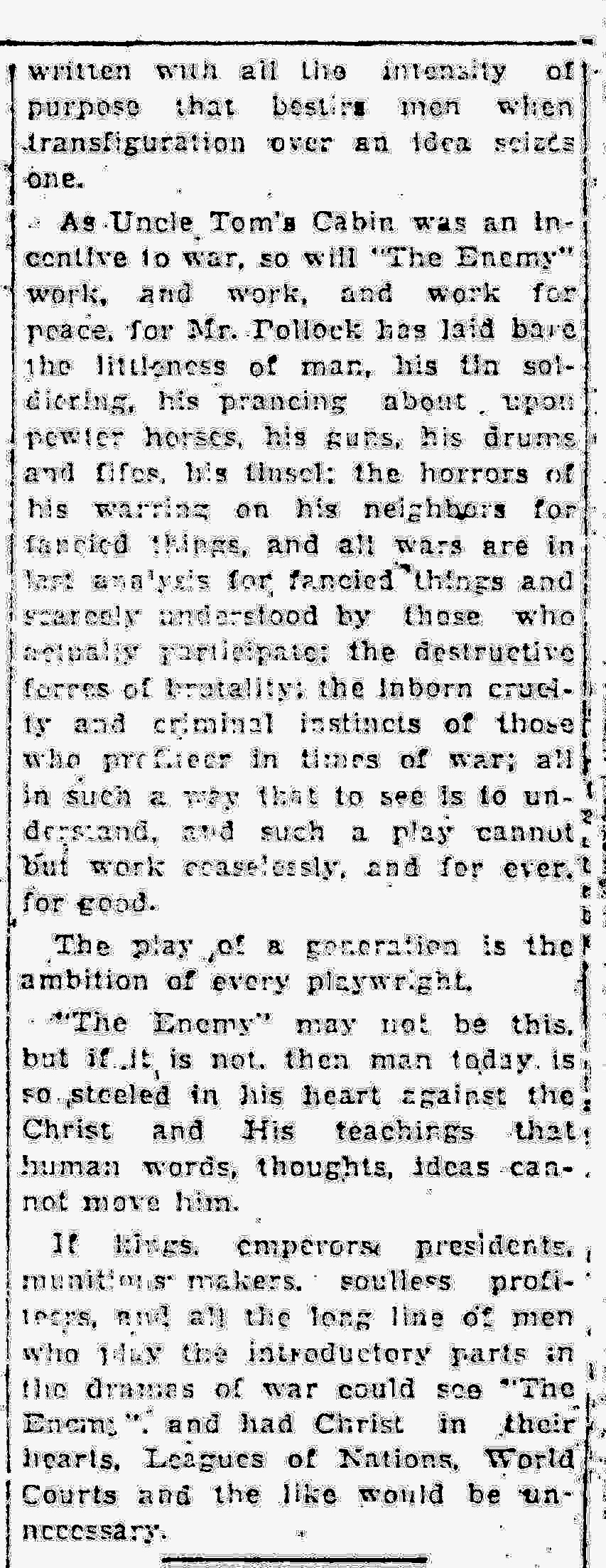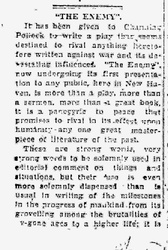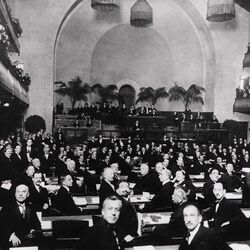"THE ENEMY"
It has been given to Channing Pollock to write a play that seems destined to rival anything heretofore written against war and its devastating influences. "The Enemy," now undergoing its first presentation to any public, here in New Haven, is more than a play, more than a sermon, more than a great book, it is a panegyric to peace that promises to rival in its effect upon humanity any one great masterpiece of literature of the past.
These are strong words, very strong words to be solemnly used in editorial comment on things and situations, but their use is even more solemnly dispensed than is usual in writing of the milestones in the progress of mankind from its [groveling] among the brutalities of by-gone ages to a higher life; it is [page 2] written with all the intensity of purpose that bestirs men when transfiguration over an idea seizes one.
As Uncle Tom's Cabin was an incentive to war, so will "The Enemy" work, and work, and work for peace, for Mr. Pollock has laid bare the littleness of man, his tin soldiering, his prancing about upon pewter horses, his guns, his drums and fifes, his tinsel; the horrors of his warring on his neighbors for fancied things, and all wars are in last analysis for fancied things and scarcely understood by those who actually participate; the destructive forces of brutality; the inborn cruelty and criminal instincts of those who profiteer in times of war; all in such a way that to see is to understand, and such a play cannot but work ceaselessly, and for ever, for good.
The play of a generation is the ambition of every playwright.
"The Enemy" may not be this, but if it is not, then man today is so steeled in his heart against the Christ and His teachings that human words, thoughts, ideas cannot move him.
If kings, emperors, presidents, munitions makers, soulless profiteers, and all the long line of men who play the introductory parts in the dramas of war could see "The Enemy," and had Christ in their hearts, Leagues of Nations, World Courts and the like would be unnecessary.













Comments